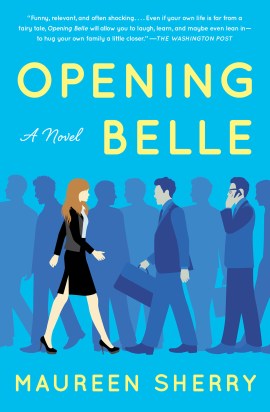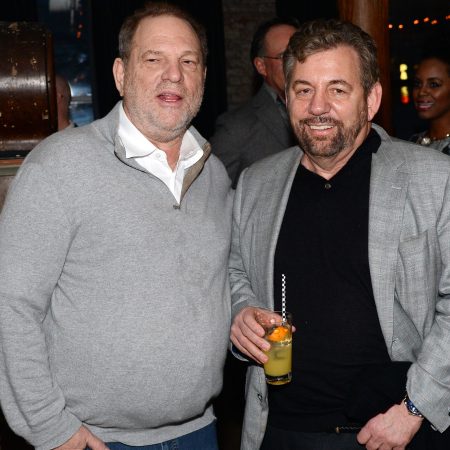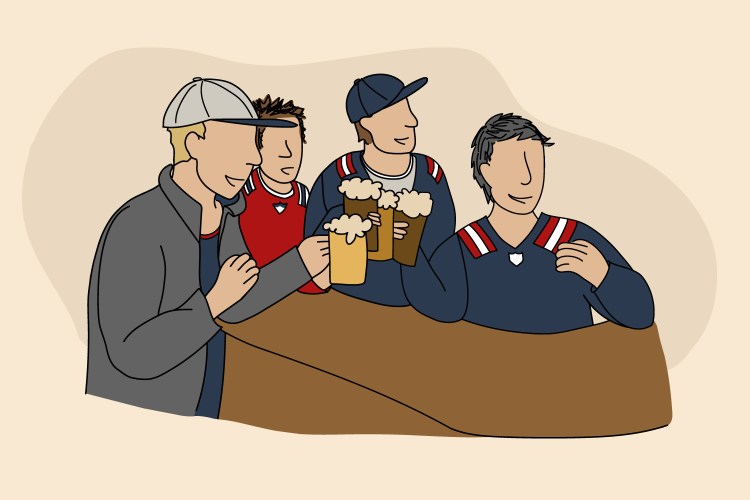Why does the #MeToo movement feel like it’s a #WhoUs? movement on Wall Street? Is it the forced use of arbitration to gag employees? The fear of retaliation and the fear of never working again? The difficulty that women on Wall Street have when they try to unite? Is it, as most banks insist, a movement that hit Wall Street a decade ago and now it’s an industry of choir boys? Or is it something else?
Sixteen years ago, my first book was about to be published: a non-fiction book about the abuse of male power on Wall Street, called The Glass Ceiling Club. I was a managing director of Bear Stearns, a firm with relatively few senior-level women. The book was a live-feed into scenes of harassment, unwanted sexual advances, pay discrepancy and the use of intimidation and money to gag those women who threatened to talk. A $150 million payment had just been made in a class action suit against Smith Barney. Bank of America was fined $39 million, and Morgan Stanley was forced to pay $54 million. The cost of silence was clearly becoming an expensive line item. Wasn’t it time for Wall Street to come clean?
My manuscript was accepted and paid for. The publisher’s ad announcing the book as a pending release was placed on Amazon, and survives like a ghost to this day. And then, the book was suddenly canceled without one copy printed. My publisher went quiet and my once enthusiastic editor wouldn’t answer my calls. My agent suggested I write a novel instead. He told me “chick lit is big these days.” Nobody asked for one cent back on my six-figure advance. My guess is that the deep pockets and litigious nature of Wall Street intimidated everyone into silence. It’s fair to surmise that this is happening regarding #MeToo claims on Wall Street now.
The Street is a tight community, and as one partner put it, “who wants to hire trouble?”
Are women on Wall Street not stepping forward because they are stopped at the HR office, handed a check and shown the door? Partly true. One of my former co-workers, now a director of a big bank, was annoyed about the constant chat about her boss’ tendency towards inappropriate relationships with young hires. She filed a formal complaint with human resources. Several days later, she witnessed that same human resources employee at a sporting venue, sitting with the same boss who was the subject of the complaint. You see the problem. Filing a report against a man who is, say, a senior boss can mean filing the report with someone who that same boss has power over as well. It’s awkward. It’s enough to get a woman to keep her mouth shut.
The Street is a tight community, and as one partner put it, “who wants to hire trouble?” As one of my former colleagues pointed out, “We don’t exactly send tweets from any women’s march.” This reminded me of my boss who told me what to watch out for on resumes. To him, signs of trouble were people with gender studies on their transcript or who advertised her role in Take Back the Night, a campus group that opposes sexual violence. The Street hires ambitious women who are more fearful of showing outrage and who tilt more towards conformity than women in the arts or media.
There have been two public firings on Wall Street in recent weeks, and I wondered if this was where it would start. Would this be the Weinstein moment where other banks would step up in a bid for more transparency? Former Congressman Harold Ford was pushed out of Morgan Stanley, but “Mr. Ford was not fired for sexual misconduct,” noted Morgan Stanley, even after some news reports inferred otherwise. And the second? A banker at Bank of America, Omeed Malik left “to pursue other opportunities.” OK yes, there is a sexual misconduct investigation going on about him but ‘that’s not why he was fired.’” That’s all. Stop being so nosy. A 70-year-old co-founder of biotech investor OrbiMed Advisors retired following allegations on sexual harassment. But all just a trickle by Hollywood and media world standards. The deep pockets and litigious nature of Wall Street will keep this dysfunctional family together. Just with fewer women.

Why don’t women support one another on Wall Street? Perhaps a personal illustration will help. When I finally did bounce back from my book’s cancellation and did write a novel Opening Belle based on the same experiences, I appeared on CNBC. Just as the cameras began to roll, the former woman banker turned news reporter, who was about to interview me said, “Wow. Not sure what you’re talking about here because this was not like anything I ever heard of.” The lights came on. She continued, “I was a banker at Montgomery Securities, and an incredibly successful vice president at 25. It was the men who guided and helped my career.” So, there she was, tossing me under the proverbial bus on national television, basically saying that she doubted my story was true. Even as I sat there. On my publication day. For a book that I had written, not once, but twice. For which I had refused to accept hush money, for which I quit my job and did not sign a non-disclosure agreement. And for which I had made myself unhireable.
Still, when the interview ended, my phone lit up. So many women were contacting me to tell their own horror stories, or to confirm mine. Meanwhile, the reporter reflected the more traditional senior banker approach: you cheerlead for the guys, and toss the other women aside by treating their stories as suspicious.
Mistrust about Wall Street is running rampant these days. How refreshing it would be for the banks to become transparent. If employees were not forced to sign their civil rights away through arbitration clauses, if harassers were called to task (such as the man that opened a woman’s bra through her shirt at a company event, -yes that happened this year too and yes, that man has left to pursue “other opportunities”), things would feel more welcoming and I’d argue, become less expensive for banks.
Financial firms circle their wagons believing it is self-protection, when it is actually a costly form of self-sabotage. Other industries have now severed cords that were embarrassing and difficult to cut, and they have helped us to believe in those industries again. Wall Street may try and bury the truth, but it will thereby fan the flames of distrust that so many Americans already feel towards the financial world. Instead of #MeToo, Wall Street operates as #WhoUs? The effort to cover up is exhausting, and it needs to stop.
Maureen Sherry, formerly a managing director of Bear Stearns, is the author of “Opening Belle,” a bestselling novel published by Simon & Shuster. She is working for Warner Bros. and Pacific Standard on the screenplay adaptation now.
This article was featured in the InsideHook newsletter. Sign up now.























